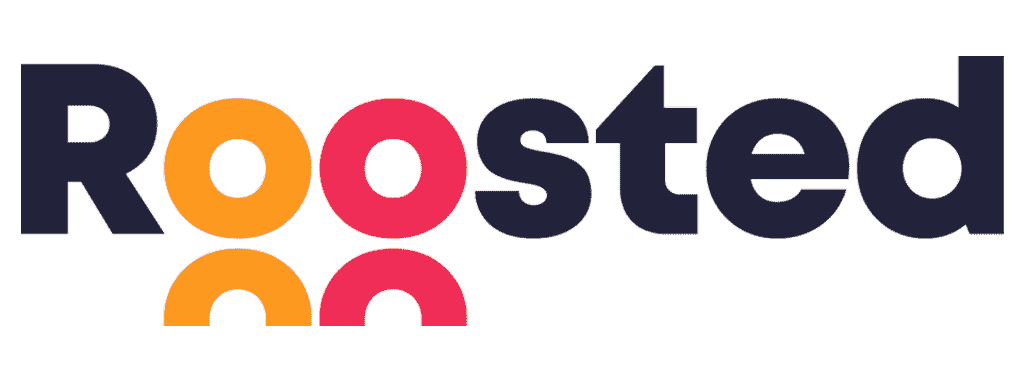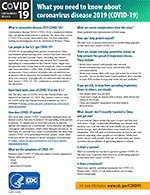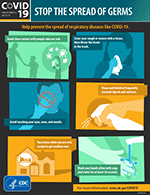COVID-19 and the
Event Industry
We've scoured the CDC and WHO to bring you trusted advice when you need it most.

Coronavirus Resources: A guide for event industry professionals
The spreading pandemic affects all of us, especially those of us who create public gatherings for a living.
Do your part by educating those around you.
Posters are an easy (but important) reminder in the fight to inform. Here’s a few that we’ve curated for you, but there’s more available (and in multiple languages) from the CDC here.
Protect your guests & staff
If you are continuing to have events, of any size, here’s some CDC approved guidelines to follow.
- Don’t push it: Public gatherings are being banned (or officially suggested to ban) in mounting jurisdictions. If your county or state has done this, follow their guidelines.
- If your event is multi-day: you need a plan for a COVID-19 outbreak at your event. Meet with emergency operations and planning teams to prepare key prevention strategies. Also, establish relationships with key community partners. Not just vendors and suppliers, but hotels, hospitals, and transportation companies.
Key prevention strategies:
- Promote the daily practice of everyday preventative actions: Distribute health messages like this one and materials developed by credible public health sources (like the CDC).
It never hurts to hear it again:
- Stay home when you are sick, except to get medical care.
- Cover your coughs and sneezes with a tissue, then throw the tissue in the trash.
- Wash your hands often with soap and water for at least 20 seconds, especially after going to the bathroom; before eating; and after blowing your nose, coughing, or sneezing.
- Avoid touching your eyes, nose, and mouth with unwashed hands.
- Clean frequently touched surfaces and objects daily.
- Provide coronavirus prevention supplies at your events:
- Handwashing stations
- Sinks with soap
- Hand sanitizers with at least 60% alcohol (and no, you can’t use Tito’s)
- Tissues
- Disposable facemasks
- Discourage sick people from attending events. Anyone that is experiencing the following symptoms should not attend, and should seek professional medical help. People may be able to spread disease even if they are unaware that they’re sick.
- Fever
- Cough
- Shortness of breath
- If possible, identify a space that can be used to isolate staff or guests who are become ill:
- Create a space for people who are sick and cannot leave the event immediately.
- This should be a separate area with as little contact as possible to other guests or staff.
- Create a plan to care for elderly or disabled persons at the event who are feeling ill.
For more, see Get Your Mass Gatherings or Large Community Events Ready for Coronavirus Disease 2019 by the CDC
What about the company?
Postpone, move the deposit, or cancel altogether? It seems like none of these are great choices, but a plan for handling these will go a long way.
- Work with your team and follow the guidelines of local health officials to determine specific criteria you’ll use to determine which events to cancel or postpone. This will aid your decision making process (you’ve got enough to think about).
- Keep everyone informed about the changes your making and why you’re making them. Let clients know immediately about what you’ve decided to do.
- Consider revising or updating your sick time and time off policy if necessary. The goal is to ensure that all employees who may be ill are able to refrain from working around others.
- Definitely revisit your cleaning and sanitization policies: this applies to all companies, not just food and beverage. Checkout the CDC’s Environmental Cleaning and Disinfection Recommendations. You need a policy that regiments thorough and frequent cleanings and disinfections of frequently touched surfaces like those listed here.
- Doorknobs
- Tables
- Switches
- Countertops
- Phones
- Desks
- Keyboards
- Toilets
- Faucets and sinks
- Not all events need to be in person gatherings. I know this is something that we may not have admitted to a few months ago, but under the circumstances, you need to consider which events can be done via video conferencing or webcast.
- Train your staff. Some of our customers have reported creating policies to mandate handwashing every 15 minutes for on-site staff. Others have reported revisiting proper handwashing and creating sanitization stations throughout the workplace and event site.
Handwashing: Clean Hands Save Lives - Plan for staff absences. Employees are people too, and they’ll be just as vulnerable as everyone else.
- Develop flexible refund policies for clients and participants. When possible, move deposits on events to dates further out where (we hope) there will be less risk of infection.
Pets are people, too
There’s been a lot circulating about our 4 legged friends being able to spread the disease, however, both the CDC and the World Organisation for Animal Health have released information reporting there is no evidence that dogs can spread the disease, and there is therefore no reason to abandon or neglect them.
However, if you or another family member happens to contract the virus, continue to treat your pet like any other family member in order to protect them:
- Keep your distance
- Make alternative plans for care
- Wear masks
- Wash hands before and after coming in contact
- Do not allow them to come in direct contact with any part of your face
- Even if they cannot contract the virus, it may be wise to think of them as an ‘unclean surface’ which may still transfer the virus to another person.
Working Remotely
I know working remotely seems counter intuitive to the event industry, and for many of our roles, it is. You should, however, know what’s available so that those that are able to work from home, do work from home.
The Famous Pair
These two apps work well together. Slack for quick communication and Zoom for more in-depth meetings especially where video can help you get to the goal more quickly. They integrate well together and nearly zero training.
Slack - instant messaging
Slack bills itself as “replacing email inside your company”, and it nearly does just that. Create groups calls channels where you can sort conversations by topic, and easily stay up-to-date with your remote team.
Zoom - video conferencing
Zoom provides high quality, easy-to-use video conferencing between your team members and anyone else (just send a link to invite them to your video conference).
There are free versions of both of these available.
Stay safe out there, friends
With a little sacrifice, we can keep our neighbors and loved ones as safe as possible from the pandemic. We know it's a struggle for all of us to see our livelihoods affected by coronavirus, but soon enough, our industry will be back on top and stronger than ever. Hang in there.



